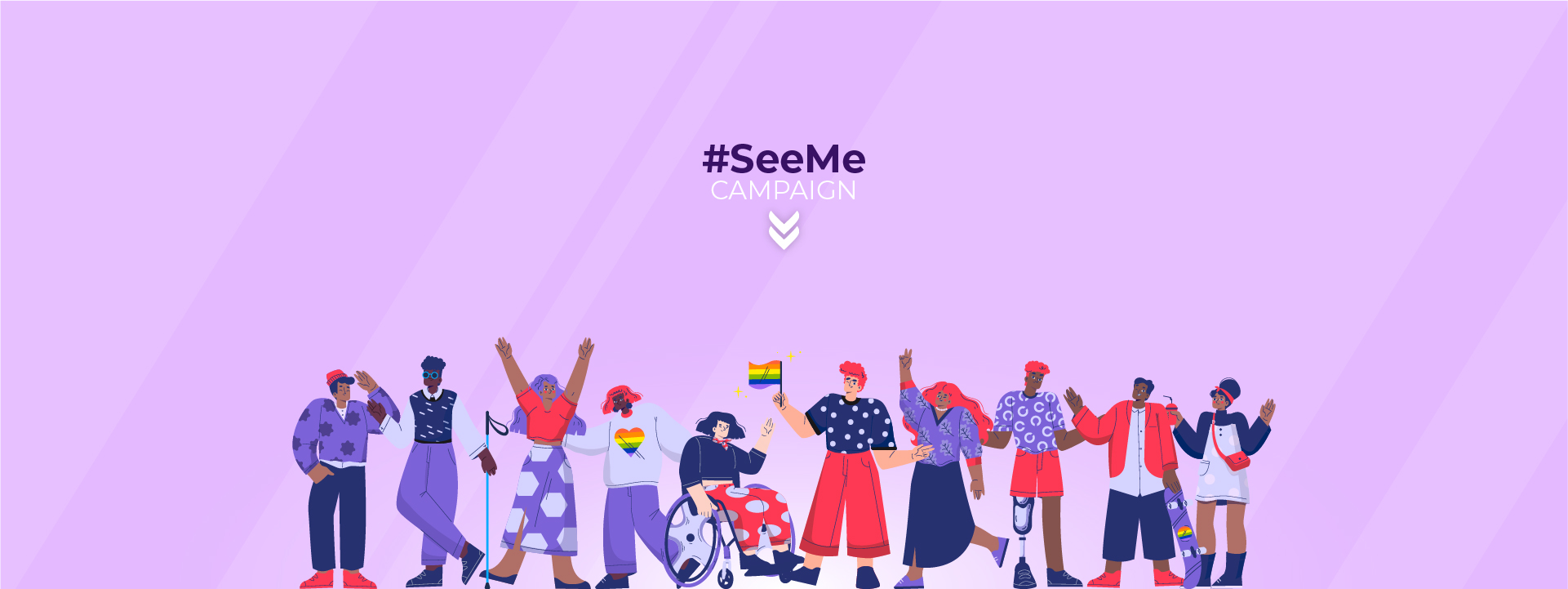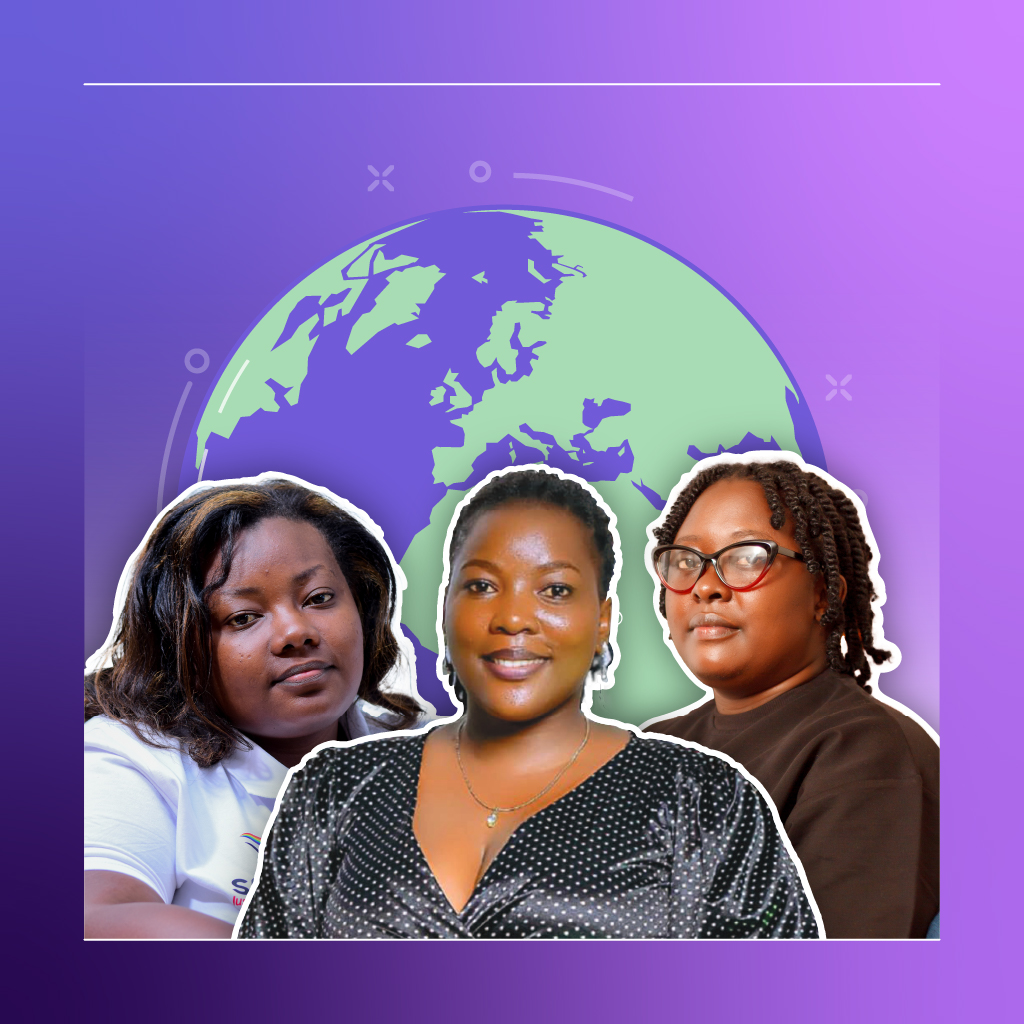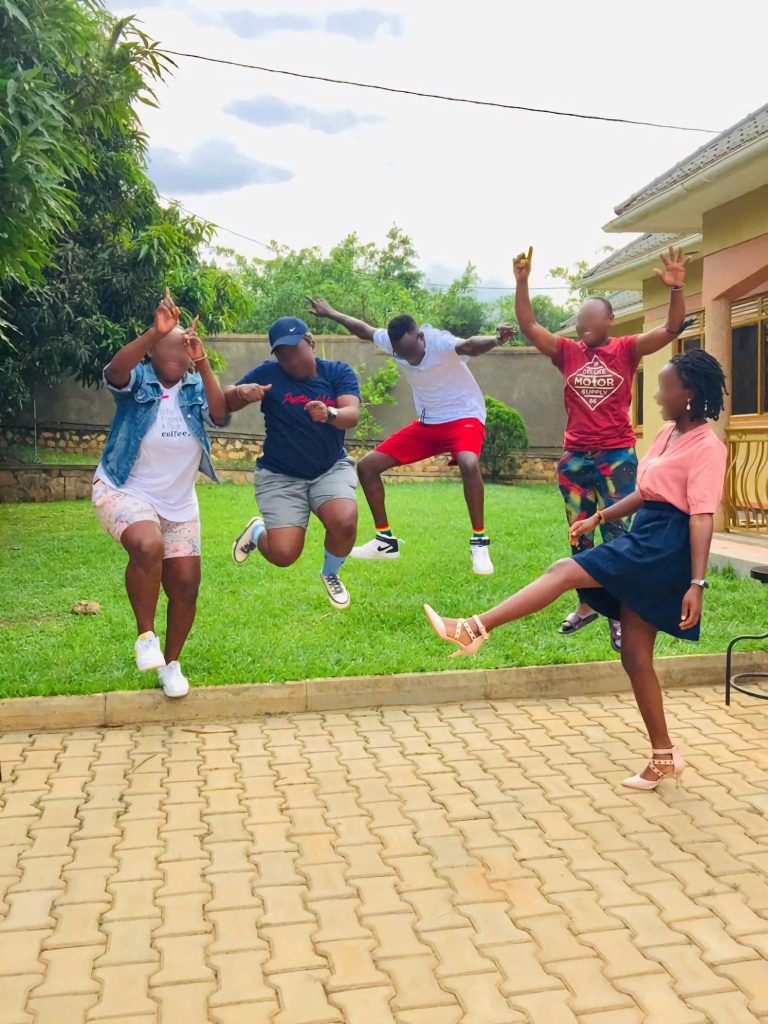This disability-led, queer feminist organisation
is breaking barriers to SRHR among the LBQT community in Uganda
Diverse Empowerment Foundation
Diverse Empowerment Foundation in Uganda advocates for the rights and well-being of LBQT (lesbian, bisexual, queer and transgender) womxn living with and without disabilities, through a holistic and intersectional approach. Edna Ninsiima spoke to (Ruby) Loretta Stephania Nakandi, Executive Director, Gracie Brendah, SRHR Advocacy Officer, and Joyce Nakijoba, SRHR Youth Advocate, at this disability-led, queer feminist organisation tackling SRHR inclusion of LBQT and disability identities. They explain how they use safe spaces, arts and language, while also gathering evidence to back up their advocacy.
Read more →
One of the partners of the Make Way programme’s core partners in Uganda, Diverse Empowerment has created a safe space, Ffena Ku Ky’oto which loosely translates to “all of us by the fireplace” in a local dialect. Here, the organisation hosts LBQT persons – with or without disabilities – overnight around a campfire where they all convene to spend time with each other. They share their experiences on topics including sexuality, pleasure, mental health and sexual and reproductive health.
Utilising the arts and language for SRHR inclusion
Integration of the creative arts in SRHR interventions helps break down complex ideas for inclusive comprehension and analysis during community engagement. It is also an enjoyable way of mental decompression, something that marginalised communities need.
“We incorporate games, poetry and contemporary dance as well. So you’ll find that after the conversations, there’s often poetry recitals, people skipping the rope and playing other childhood games, while the rest are dancing and merrymaking. It’s quite the sight, seeing LBQT womxn – those living with and without disabilities – playing together,” Ruby affirms, adding that at the space, they’re all able to get away from their pressures and be at ease.
Like the campfire gathering, the contemporary dance session is named in a local dialect, Ty’abula Tubone, translating to “let’s see you dance.” The use of Luganda and Lusoga languages makes for a deeper bonding experience, giving participants a sense of inclusion and grounding.
Ffena Ku Ky’oto also doubles as a sleepover, and attendees who are ready to retire are provided lodging for the night. Ruby explains that while it’s convenient, this is particularly a safety and security measure.
Diverse Empowerment Foundation has established contact with queer friendly medical personnel at select drop-in centers/clinics where disabled LBQT persons can go to access SRH services. A liaison officer from the foundation makes introductory calls, in addition to providing interaction guidance to both parties. These partnerships ensure access for community members who might want to get tests, treatment or get information on their SRH.
Working towards evidence-based policy and advocacy
The foundation is conducting an SRHR needs assessment at every gathering they are part of within LBQT communities, Ruby says. “We do these deliberate check-ins to understand exactly what each one’s specific needs are. We are trying to understand where SRHR can put our focus right now. Findings from the needs assessment shall inform a comprehensive SRHR policy that’s also in the works. Gracie Brendah explains: “We want our policy to be informed by evidence-based research, and also come with a toolkit specific to disability inclusion. We truly believe that we have been left behind.”
They hope to utilise these resources in policy advocacy. They want to come to the table with all their bases covered. That way, they say “when we start to speak about our reproductive health rates among queer disabled people, we know exactly what that looks like and can back it up through our own research and policies.”
So, why intersectional SRHR?
For Ruby, an intersectional approach is the only way to get the needs and existences of disabled-queer persons heard and acknowledged. “When we started having conversations at Ffena Ku Ky’oto, people began to realise that they shared oppressions.” They note, saying that where LBQT women are sexualised, disabled queer women are hyper-sexualised too. Where women are denied access to some work spaces, people with hearing disabilities are excluded when there are no provisions for them. When we stop looking at our issues in isolation, we can collectively work towards bigger, more effective interventions. Ruby adds: “We all face systemic inequalities like sexism and ableism across identities. Through an intersectional SRHR lens, we can enhance visibility and awareness for an inclusive policy outcome.”
Article by Edna Ninsiima.






